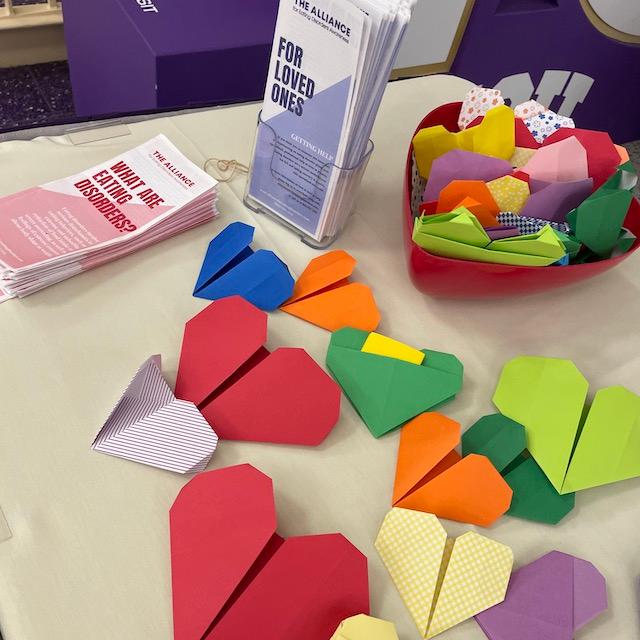A tumble on a campus sidewalk, papers scattered from a backpack, a struggle with a
heavy door. As witnesses to such incidents, we’d make sure that the person who fell
is OK, lend a hand collecting the paperwork and hold the door open.
Other signs of distress aren’t always obvious. Stress, anxiety and depression are
less recognizable, and for college students they are always a concern. Fortunately,
TCU has made mental and emotional health a priority for students as well as faculty
and staff.
“Over the last 20 years, there’s been a change in society around mental and emotional
health. As society changed, the university had to change too,” Brad Stewart, associate
director of fitness and wellness education, said. “As a university, we’ve embraced
the idea of balance, with a focus on wellness as the best performance-enhancing tool.
From physical to emotional to spiritual needs, people, especially young adults, are
now resource-seeking for all these different aspects.”
Because students today may be much more willing to express that they’re struggling
and reach out and talk to someone, faculty and staff are on the front lines and can
be an advocate when students are in a mental health crisis, he said.
“There are red flags, like grades and absences. How students are presenting themselves,
their physical appearance, body language and their behaviors, like being agitated
or fidgeting, are indicators.”
Because of the small class sizes at TCU, Stewart said faculty can be better attuned.
“We have good support structure because if you’re seeing a student two to three times
a week in the classroom, lab or clinic, you can pick up on how they are behaving differently.”
He acknowledges that it’s not always easy to intervene when someone’s struggling.
“Start with a simple conversation and focus on them as an individual. Say something
like ‘I’ve noticed some changes. How are you feeling?’ As their advisor or professor,
they’re already listening to you, and if you can infuse personal interactions, that’s
the first step. The more that people are acknowledged, the more they have sense of
community and belonging and are willing to share when they’re struggling.”
As an advocate, you don’t have to be highly trained – you just need to help students
know how to navigate the campus’ resources, he said. When it comes to the programs
that Campus Recreation & Wellness Promotion offer, there are two major sources:
Wellness Education Office
The Wellness Education Office is the primary source for mental and emotional health
programming. Wellness Education offers a variety of workshops by request. For example,
when professors know they will be out of class, a “Don’t Cancel that Class” Wellness
Education workshop is an option. Workshops specific to mental and emotional health
are: QPR: Suicide Prevention; Stress Management; Relaxation Techniques; Time Management;
Mental Health Allyship; and Benefits of Sleep.
There’s also a regular Wellness Calendar of workshops each semester. These and the
other workshops are provided by either full-time staff or graduate assistants who
are trained in QPR (Question, Persuade, Refer), a nationally recognized program that
trains individuals to become “gatekeepers.”
“By having us focus on primary prevention education, it frees up Counseling Services,
Religious & Spiritual Life, Dean of Students Office and the Health Center to focus
their efforts toward intervention and crisis management,” Stewart said.
The Wellness Workshops are student-focused but available for anyone on campus to attend.
Peer Educators
The other major source for programs is Peer Educators. Led by undergraduate students, these planned outreach tabling events and educational
campaigns teach wellness skills and provide regular activity-based education opportunities.
“Peers listen to peers,” Stewart said, adding that these students teach for the love
of helping people and as a way to give back. Peer Educators conduct the research (supervised
by staff), market the events, create handouts on their activities, often held in the
Commons, BLUU or library. Topics and activities typically include:
- Art Therapy
- Attitude of Gratitude
- De-Stress Dance Off
- Self-Care
- Mid-Semester Mindful Reset
- Emotional Intelligence
- De-Stress Fest
- National Suicide Prevention Week tabling
“As a society, we’re more comfortable talking about topics like suicide, sexual assault
or depression that 15 to 20 years ago we had very few resources and programs to address,”
Stewart said. “Now, as a university, we’re stepping up and doing something to help
students take care of themselves.”
For more information, visit the Wellness Education website.
